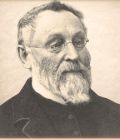COMMON NAME:
ORANGE SPIDER.
Symptoms
For extreme sensitiveness of puberty; during pregnancy and climacteric years (A.).
Most complaints are accompanied with vertigo (Kali-P., Phosphorus,) (Bt.).
Headache: When beginning to move, as of a dull heavy pressure behind the eyes; violent, deep, in the brains, worse from lying down (Lachesis); very much aggravated from others walking on the floor, or from least motion of the head (A.).
Great aversion to work (China, Lycopodium, Nux vomica, Phosphorus, Sepia, Sulphur). (G.).
ANXIETY ABOUT THE HEART (Aconite, Arsenicum, Aurum, Camph., Carbo vegetabilis, Ignatia, Kalm., Meny., Naja., Phosphorus, Pulsatilla, Spigelia, Tabacum) (Hr.).
Great inclination to be startled (Belladonna, Borax, Gelsemium, Kali carb., Stramonium). (Hr.).
Time seems to pass very rapidly (too-slowly-Argentum nitricum, Cannabis indica, Nux- M.) (A.).
Burning in the liver region (Sulphur) (Br.).
Nausea and vomiting when closing the eyes (Hr.).
Nausea from least motion (Bryonia, Cocc., Kali carb.). from fast riding in a carriage (Cocc., Petroleum, Sepia).
EVERY SOUND SEEMS TO PENETRATE THROUGH THE WHOLE BODY, CAUSING NAUSEA AND VERTIGO (A.).
Headache behind the eyes (Hr.).
Nausea increased to vomiting during vertigo (Iris., Kali_b., Tabacum) (Hr.).
VERTIGO ON CLOSING THE EYES (Lachesis, Thuja.) FROM ANY, EVEN THE LEAST NOISE (A.).
MENIERE’S DISEASE OR AURAL OR LABYRINTHINE VERTIGO (A.).
Periodical headache; throbbing and shooting, over the left eye: aggravated by the heat of the sun and noise (D.). Luminous vibrations before the eyes (Br.).
Chronic nasal catarrh (Calcarea, Nat-S.) (A.).
Nasal discharge thick, yellow, greenish and offensive (Calcarea, Kali-S., Mercurius, Nat-S., Thuja). (A.).
SEA SICKNESS OF NERVOUS WOMEN; THEY CLOSE THEIR EYES TO GET RID OF THE MOTION OF THE VESSEL AND GROW DEATHLY SICK (Tabacum) (A.).
Scrofulosis, when best remedies fail (Calc, Iodium, Tuberculinum).(N.).
Phthisis florida (in the beginning.). (A.).
Stitch high up (apex) in the left chest to the back (A.). Cardiac anxiety and pain (Arsenicum, Cact., Lachesis, Naja., Natrum muriaticum, Phosphorus,) (Bl.).
Inclination to take deep breath (Bryonia, Phosphorus). to sigh (Ignatia) (C.).
Violent stitches in the upper left chest, below the scapula, extending to the necks (Anis., Myrt., Pix., Sulphur) (A.).
Pain in the bones all over, as if broken (Eup-P). (A.).
Great sensitiveness between the vertebrae; sits sideways in a chair to avoid pressure against the spine (Chin-S).; aggravated by the least noise and jar of foot on the floor (A.).
TOOTHACHE: EVERY SHRILL SOUND PENETRATES THE TEETH (A.).
Teeth sensitive to cold water (Ant-C., Calcarea, Hepar, Mercurius, Staphysagria, Sulphur) (C.).
Salty taste in the mouth (Pulsatilla) (C.).
Hysteria during puberty (Ignatia, Pulsatilla) (C.).
Faints after every exertion (Arsenicum, Cocc., Nux vomica, Sepia, Verat) (C.).
AGGRAVATION:
From noise; from touch; on closing the eyes; from least motion; from jar; from riding in a carriage; from going on board the ship; and from pressure.
AMELIORATION:
From rest; and from warmth.
RELATIONSHIP:
Compare: Aconite, Aranea, Belladonna, Conium, Graphites, Ignatia, LYc., Natrum muriaticum, phosphorus, Spigelia, Sepia, Silicea, Tabacum, Thuja and Zincum met.
Follows well after: Calcarea, and LYc.
Antidotes: Aconite, Graphites, and Mosch.

